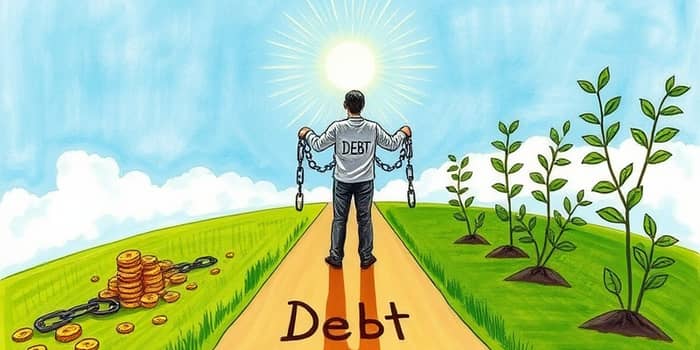
Deciding whether to eliminate debt ahead of schedule can feel empowering yet daunting. Understanding the full picture helps you weigh the real costs and benefits of early repayment.
Paying off a loan early means settling your remaining balance before the scheduled term ends or making extra payments that exceed your required monthly amount. This approach applies to many types of debt, such as personal loans, auto loans, mortgages, student loans and business financing.
While the appeal of complete financial freedom from debt is strong, not every scenario rewards early payoff. Evaluating your individual circumstances and the fine print in your loan agreement is vital before making a definitive choice.
When you choose to pay off debt ahead of schedule, you unlock several potential advantages:
These upsides resonate powerfully, especially when interest rates are high or financial security feels precarious.
However, prepaying isn’t always the top choice. Consider these possible downsides:
Ultimately, the true cost of early repayment emerges only when comparing the penalties and missed investment growth to the interest you avoid paying.
Before making a decision, run the numbers on your specific loan, penalty clauses and potential investment returns. Below is a summary table to help you compare:
To illustrate with numbers: a $3,000 balance at 18% APR compounds nearly $4,000 in interest over 18.5 years on minimum payments. Paying it in full today saves almost $1,000, but a 3% prepayment penalty ($90) reduces net advantage slightly.
Early payoff emerges as the smart move when:
In these situations, the combination of financial savings and emotional relief often justifies acting swiftly.
Conversely, delaying full payoff could be wiser if:
By comparing your loan’s effective cost to achievable returns in investments or tax-deductible vehicles, you can determine whether debt repayment truly offers the best return on your capital.
Financial professionals recommend:
Ultimately, your unique goals, risk tolerance and financial landscape should guide you. There is no one-size-fits-all answer.
Paying off a loan early can be a transformative step toward lasting financial independence and security, but only when executed thoughtfully. By investigating your loan’s terms, tallying the real cost of penalties, and juxtaposing those figures against potential investment returns, you can chart a path that serves both your short-term peace of mind and long-term prosperity.
Whether you clear debt swiftly or allocate funds toward growth opportunities, making an informed choice empowers you to build a stronger financial future on your own terms.
References













